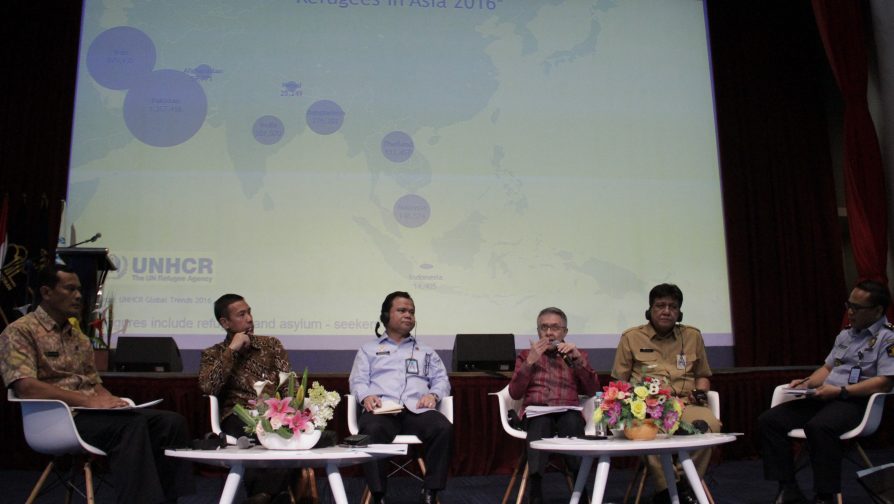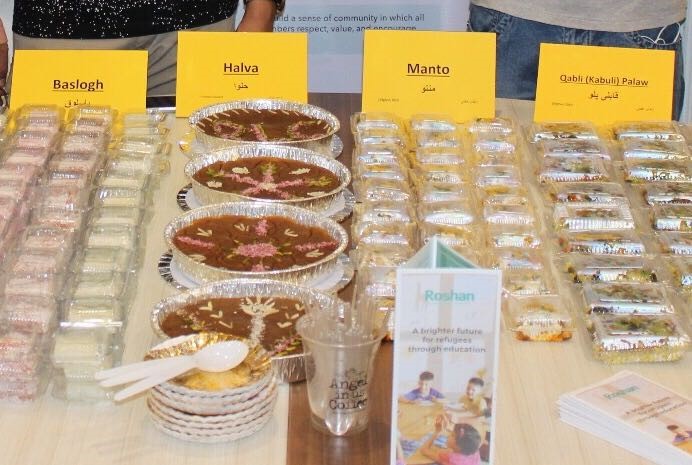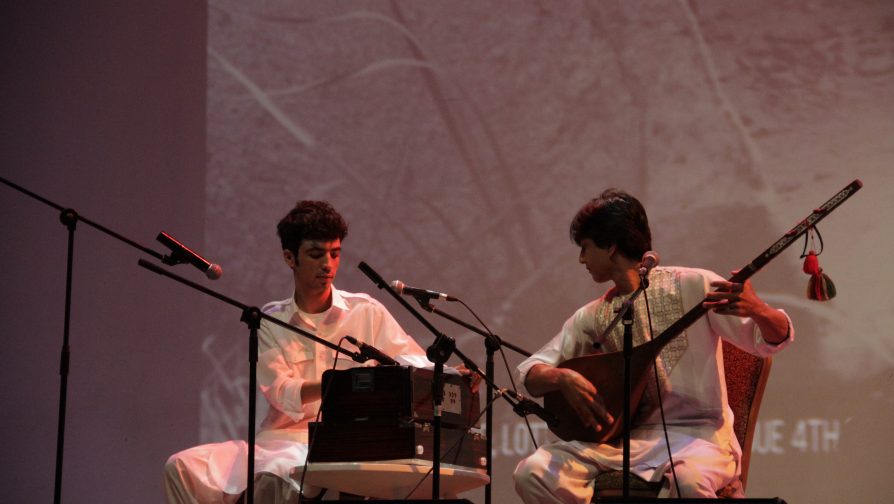It was only 7 am in Jakarta, but the area of The ICE Palace Concert Hall, which is situated in a mall in the capital, was already packed with dozens of refugee youth. They were rehearsing for their performances at a cultural event to commemorate World Refugee Day (WRD) 2017 later that day. Some Somalian refugees practiced their dancing routines on stage, while a number of Ethiopian refugees prepared their costumes backstage.
JAKARTA, INDONESIA – The commemoration was jointly organized by the UN Refugee Agency (UNHCR) and the Directorate General of Immigration (DGI). The event entitled “Celebrating Diversity #WithRefugees” was a part of a series of activities marking WRD 2017.
Every year on 20 June, World Refugee Day is celebrated in over 100 countries globally to raise awareness about refugees and to mobilize communities around the world to take action. For this year’s WRD commemoration, UNHCR collaborated with local partners through numerous events that began in early June. The main event was a two-day joint collaboration with the DGI on 24 and 25 July.
The joint event began with a panel discussion among key Indonesian Government counterparts and UNHCR partners to discuss the implementation of the newly enacted Presidential Regulation on Refugees. Since 1979, for nearly four decades, the Indonesian Government has shared the responsibility of all countries to help alleviate the plight of refugees and, in doing so, has maintained its humanitarian tradition of welcoming and protecting refugees in the country. The new presidential regulation is the country’s first ever comprehensive national law covering refugees in Indonesia. It is also significant because it reaffirms the Indonesian Government’s commitment to providing protection to refugees and thereby provides a model for other countries in the region.
“In accordance with Presidential Regulation 125 (2016), immigration officials will conduct the handling of refugees in terms of reception, security, shelter, and supervision through coordination and cooperation with respective domestic respective agencies and international organizations linked with refugees and asylum-seekers,” Directorate General of Immigration Ronny F. Sompie said.
UNHCR’s Representative in Indonesia Thomas Vargas applauded the DGI and the other Government counterparts for taking an active role in the discussion on the implementation of the Presidential Regulation and in handling refugees in the country. “This law indeed provides an example for many other countries in South East Asia and beyond on how important it is to take a humanitarian approach to help refugees,” said Vargas. “As the government moves forward in implementing the law, UNHCR continues to offer its technical expertise and other support,” he added.

UNHCR organizes a panel discussion with the Directorate General of Immigration in Jakarta to discuss a new law on refugees. © UNHCR/DFM. Hakiki
Alongside the DGI and UNHCR, panelists included Director for Human Rights and Humanitarian Affairs at the Ministry of Foreign Affairs Dicky Komar; Puja Laksana – Secretary of the Desk for Handling (change to new name of the Desk) Human Trafficking, Refugees and Asylum Seekers at the Coordinating Ministry of Political, Legal, and Security Affairs and Masykur, Head of Subdivision for the Development of People across Borders at the Ministry of Home Affairs.
Komar said that in light of the vacuum of legislation with regard to the handling of refugees and asylum-seekers, “the Perpres [regulation] is something we should be proud of. Although imperfect, at least the Perpres will give legal certainty to our efforts in anticipating the vulnerabilities coming from outside, which is the issue of refugees and asylum-seekers.”
Under the regulation, both Laksana and Masykur commented that the local government is under the obligation to provide shelter for refugees. “Until the Perpres was enacted, we did not have any rule regulating the issue of refugees. Now that we have it, the Perpres is binding towards the Indonesian people, the Indonesian Government, the Indonesian institutions—hence it must be implemented,” Masykur added.
A photography exhibition entitled “Four Decades of Protecting Refugees” was also launched on the same day to highlight Indonesia’s long tradition of providing safe haven to refugees over the years and ways UNHCR has contributed.
On the second day of the WRD commemoration, UNHCR invited governmental officials, the diplomatic community and UNHCR’s partners to celebrate the diversity of refugees with a cultural exhibition, which displayed the diverse talents and skills of refugees hosted by Indonesia. The cultural exhibition featured musical and dance performances, as well as a culinary festival organised by UNHCR’s partners Church World Service and Roshan Learning Centre.

Some refugees serve an array of sumptuous traditional snacks from various countries. © Courtesy of Roshan Learning Center
A performance by a group of refugee children opening the event immediately captured the audience’s attention as they danced to a song called Smile, which calls for unity. Their performance was followed by a skit titled Terima Kasih Indonesia [Thank you Indonesia]; Behold the Future, symbolizing the hopes and dreams of young refugees and their gratitude to their Indonesian hosts.
A group of refugees from Somalia later took the stage to perform a traditional Somali dance called Ciyaar Somali Saylici. Their energetic act was followed by a performance from University of Indonesia students, in collaboration with two talented young Ethiopian refugees of two songs reflecting the friendliness of Indonesian people. Their band has been performing in a number of gigs around Jakarta. The event concluded with a musical performance by an Afghan duo who played Afghan traditional instruments and a traditional ethnic dance in Ethiopia called Shagoye.
In between the performances, UNHCR invited its partners and supporters – the Indonesian Red Cross, The Learning Farm, Tzu Chi Foundation and a private sector donor, Natrabu restaurant, – on stage to recognize their commendable work in providing assistance to refugees.

An Afghan duo plays Afghan traditional instruments. © UNHCR/S. Apsari
Share on Facebook Share on Twitter